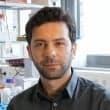This course is part of Chemistry and Technology for Sustainability.
This advanced course teaches you how to design and operate effective biorefinery systems for converting biomass into valuable components. You'll learn cutting-edge techniques for biomass activation, separation, and conversion, with a focus on maximizing sustainability. The curriculum covers mass and energy balances, process unit design, and system evaluation criteria. You'll master the tools needed to efficiently process various biobased feedstocks, from plants to waste streams, and understand how to evaluate designs for economic viability and sustainability. The course emphasizes practical applications in the transition from fossil-based to biobased industries.
4.9
(15 ratings)
10,657 already enrolled
Instructors:
English
English
What you'll learn
Choose appropriate chemical pre-treatments and conversions for desired products
Design conceptual biorefinery processes
Evaluate process designs for energy and feedstock efficiency
Compare biobased processes with fossil-based alternatives
Master biomass activation and separation techniques
Skills you'll gain
This course includes:
PreRecorded video
Graded assignments, exams
Access on Mobile, Tablet, Desktop
Limited Access access
Shareable certificate
Closed caption
Get a Completion Certificate
Share your certificate with prospective employers and your professional network on LinkedIn.
Created by
Provided by

Top companies offer this course to their employees
Top companies provide this course to enhance their employees' skills, ensuring they excel in handling complex projects and drive organizational success.





There are 6 modules in this course
This comprehensive course covers the fundamentals and advanced concepts of biorefinery systems. Students learn about biomass components, pre-treatment techniques, and conversion methods with a focus on sustainable processing. The curriculum includes practical aspects of process design, fermentation methods, downstream processing, and system optimization. Special emphasis is placed on energy efficiency, resource recovery, and economic evaluation of biorefinery processes. The course combines theoretical knowledge with hands-on experience using flow-sheeting software for process design.
Introduction to Biorefinery
Module 1
Biomass and Biorefineries
Module 2
Conversion
Module 3
Downstream Processing
Module 4
Process Evaluation and Improvements
Module 5
Case Study: Process Design
Module 6
Fee Structure
Individual course purchase is not available - to enroll in this course with a certificate, you need to purchase the complete Professional Certificate Course. For enrollment and detailed fee structure, visit the following: Chemistry and Technology for Sustainability
Payment options
Financial Aid
Instructors

14 Courses
Leading Expert in Bioprocess Engineering and Biorefinery Technology
Dr. Corjan van den Berg serves as Assistant Professor at the Bioprocess Engineering group of Wageningen University & Research, where he specializes in developing biorefinery processes for next-generation feedstocks. His research focuses on extraction and separation technologies, particularly for microalgae and other microbial sources. After completing his PhD, he has established himself as an expert in bioprocess engineering, with significant contributions to extraction technologies and biorefinery development. In 2019, he co-founded Revyve (initially Fumi Ingredients) with Edgar Suarez Garcia, developing natural functional ingredients from micro-organisms. Their company has secured significant funding, including 8 million euros to build a factory that produces food protein from waste streams. His work spans multiple areas including extraction technology, separation processes, and biorefinery design, with particular emphasis on developing sustainable processes for converting biomass into valuable products. Through his academic work and entrepreneurial ventures, he continues to advance the field of bioprocess engineering while creating practical applications for sustainable protein production. His expertise in biorefinery and separation technology has been instrumental in developing new processes for extracting and purifying valuable compounds from microbial sources, contributing to both academic research and industrial applications.

5 Courses
Leading Expert in Biobased Soft Materials and Sustainable Processing
Dr. Costas Nikiforidis serves as Associate Professor of Biobased Soft Materials at Wageningen University & Research, where he leads a team of 10 PhD candidates, 1 postdoctoral researcher, and several undergraduate students. After studying Chemistry at Aristotle University in Thessaloniki, Greece, and completing his PhD in Physical Chemistry of Foods, he joined Wageningen University over a decade ago. His research focuses on bio-sourcing molecules and molecular complexes for creating sustainable and functional materials, with particular emphasis on understanding molecular interactions in biomass for sustainable separations. His work spans natural complexes, supramolecular chemistry, and biomass separation, contributing significantly to sustainable food production and material development. With over 60 peer-reviewed publications, one patent, and numerous speaking invitations at conferences, universities, and companies, he has established himself as a leading voice in biobased materials research. His highly-cited work includes groundbreaking research on oil bodies, protein-based structures, and sustainable food production concepts, demonstrating the practical applications of his research in both food and material sciences. Through his leadership of the Biobased Soft Materials team, he continues to advance our understanding of property-function relationships in biosourced molecules and their applications in sustainable materials development.
Testimonials
Testimonials and success stories are a testament to the quality of this program and its impact on your career and learning journey. Be the first to help others make an informed decision by sharing your review of the course.
Frequently asked questions
Below are some of the most commonly asked questions about this course. We aim to provide clear and concise answers to help you better understand the course content, structure, and any other relevant information. If you have any additional questions or if your question is not listed here, please don't hesitate to reach out to our support team for further assistance.



